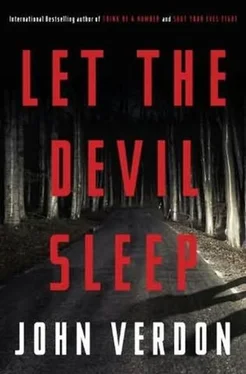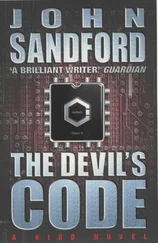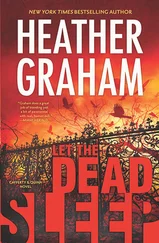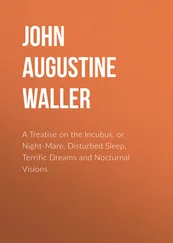Bullard nodded, her eyes running down the sheet again. “According to this you’ve spoken directly to Ruth Blum’s sister en route from Oregon to Aurora, to Larry Sterne in Stone Ridge, and to Jimi Brewster in Turnwell. What about the rest of the people on this list?”
“Callback requests have been left on the voice mails of Eric Stone, Roberta Rotker, and Paul Mellani.”
“Do we have their e-mail addresses?”
“I believe Kim Corazon supplied them for everyone on her contact list.”
“Then follow up your voice mails immediately with e-mails. Anyone we don’t hear back from within the next half hour, we follow up again. Tell Carly she’s got fifteen minutes to give me a draft. If we don’t get a response to the second message, we need to dispatch troopers to each physical address.”
After Clegg hurried out of the room, Bullard took a deep breath, sat back in her chair, and gazed thoughtfully at Trout. “Getting back to more difficult questions, do you have any ideas regarding the motive behind Ruth Blum’s murder?”
“It’s what I said before. Just look at the Shepherd’s message.”
“I have it memorized.”
“Then you know the motive as well as I do. The debut of The Orphans of Murder on RAM the other night hit his most sensitive nerve and brought the whole kill-the-rich mission back to life.”
“Dr. Holdenfield? You agree with that?”
Rebecca nodded stiffly. “In general, yes. More specifically, I’d say that the TV program brought his resentment back to life. It broke whatever dam had been holding the emotion in check for the past ten years. Then the rage began to flow again into his social-injustice fixation, and the murder was the result.”
“Interesting way of seeing it,” said Bullard. “Dave? How do you see it?”
“Cool, calculated, risk-averse-the opposite of Rebecca’s description. Zero rage. Total rationality.”
“And the totally rational motive for killing Ruth Blum would be…?”
“To stop the work being done on Orphans , because it posed a threat to him.”
“That threat being…?”
“Either something that Kim might discover as she continued the interviewing process or something that a viewer might realize while watching the series on TV.”
Bullard’s skepticism returned. “You mean a link that might connect the victims? Other than their cars? We just discussed the problem with-”
“Maybe it’s not a ‘link’ per se. Kim’s stated goal-widely advertised-was to reveal the effects of murder on the lives of the living . Maybe there’s something in the current lives of those families that the killer doesn’t want revealed-something that might point to his identity.”
Trout yawned.
Perhaps if he hadn’t, Gurney wouldn’t have felt compelled to add a final possibility. “Or maybe the murder, combined with the explanatory message, is an effort to make sure that everyone keeps thinking about the Good Shepherd attacks in the same old way. Maybe it’s an effort to head off the possibility of someone finally launching the kind of investigation that should have been conducted at the time.”
There was fury in Trout’s eyes. “What the hell do you know about what should have been done at the time?”
“What seems clear is that you viewed the case exactly the way the Good Shepherd wanted you to, and you acted accordingly.”
Trout stood up abruptly. “Lieutenant Bullard, as of now this case is coming under federal control. The chaos and crackpot theories you’re encouraging here don’t give me any alternative.” He pointed at Gurney. “This man is here at your invitation. He has no official standing. He has repeatedly voiced a stunning disrespect for the Bureau. He may very well become the central figure in a felony arson case. He may also be the recipient of illegally leaked materials from FBI and BCI files. He has suffered traumatic brain injury and may have physical and psychological impairments to his perception and judgment. I refuse to waste any more time debating anything with him, or in his presence. I’ll be speaking to your Major Forbes about the realignment of investigatory responsibility.”
Daker stood up next to Trout. He looked pleased.
“Sorry you feel that way,” said Bullard calmly. “My purpose in airing contrasting points of view was to test their relative strengths. You don’t think my purpose was achieved?”
“It’s been a waste of time.”
“Trout’s going to be famous,” said Gurney with a chilly grin. Everyone looked at him. “He’s going to go down in FBI history as the only supervising agent who ever took control of the same case twice and managed to screw it up twice.”
There were no farewells, no handshakes.
Thirty seconds later Gurney and Bullard were alone in the room. “How sure are you?” she asked.
“How sure are you that you’re right and everybody else is wrong?”
“About ninety-five percent.”
No sooner did he hear his own words than a profound doubt swept through him. To be that sure of anything in these shadowy circumstances suddenly seemed like manic overconfidence.
He was about to ask her how soon she expected actual control of the process to move to the FBI regional office when Clegg appeared in the doorway. His eyes were wide with the kind of distressed urgency you saw only on the faces of young cops.
Bullard looked up. “Yes, Andy?”
“Another murder. Eric Stone. Just inside his front door. Ice pick to the heart. A little plastic zebra on his lips.”
Willing to Kill
“Oh, God!” said Madeleine, wincing. “Who found him like that?”
She was standing at the sink island, a half-drained colander of noodles in her hands. Gurney was sitting on a high stool across from her. He’d been relating the low points, difficulties, and conflicts of his day-something that didn’t come naturally to him. Never had. He blamed it on his genes. His father had never admitted to being disturbed by anything, never admitted to experiencing fear or anger or confusion. “Speech is silver, but silence is golden” was his father’s favorite aphorism. In fact, until Gurney learned different in high school, he thought that was the famous “golden rule.”
His first instinct was still to say nothing about anything he felt. But lately he’d been trying to make small advances against this lifelong habit. His injuries last autumn had diminished his tolerance for stress, and he’d discovered that sharing some of his thoughts and feelings with Madeleine seemed to help, seemed to relieve the pressure.
So he sat on the stool by the sink, feeling awkward, narrating the day’s disturbances, answering her questions as best he could.
“One of his customers found him. Stone made a living as a specialty baker for some local inns and B &Bs. One of the inn owners came by to pick up an order of cookies. Gingersnaps. She noticed that the front door wasn’t completely closed. When Stone didn’t answer her knocking, she opened the door herself. And there he was. Just like Ruth Blum. On his back in the entry hall. With the handle of an ice pick protruding just below his sternum.”
“God, how awful! What did she do?”
“Apparently called the police.”
Madeleine shook her head slowly, then blinked, looking surprised to find herself still holding the colander. She emptied the steaming noodles into a serving platter. “That was the end of your day in Sasparilla?”
“Pretty much.”
She went to the stove and got a pan in which she’d been sautéing asparagus and mushrooms. She tipped the mixture onto the noodles and put the empty pan in the sink. “The confrontation you were telling me about with that Trout person-how concerned are you?”
Читать дальше












